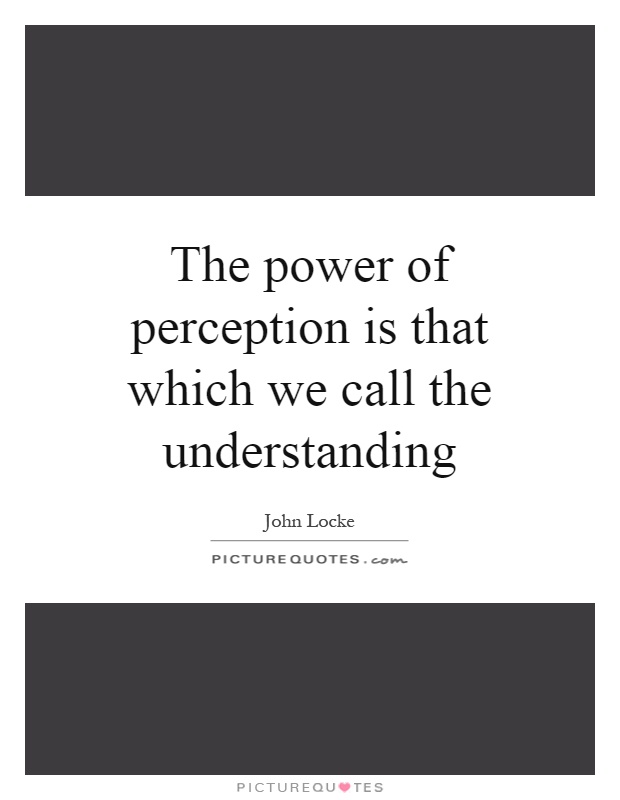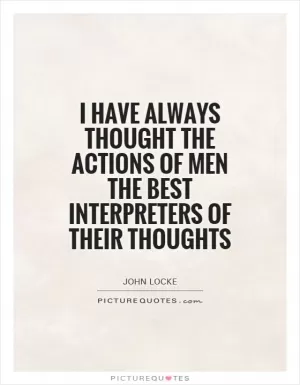The power of perception is that which we call the understanding

The power of perception is that which we call the understanding
John Locke, a prominent philosopher of the 17th century, is known for his contributions to the theory of knowledge and understanding. One of his key ideas is the concept of perception and its role in shaping our understanding of the world. Locke believed that perception is the foundation of all knowledge and that it is through our senses that we come to understand the world around us.Locke argued that our minds are like blank slates, or tabula rasa, at birth, and that all knowledge comes from our experiences and perceptions. He believed that our senses provide us with the raw data that our minds then process and interpret to form our understanding of the world. In this sense, perception is the gateway to knowledge and understanding.
According to Locke, perception is not just about seeing or hearing, but also about understanding and making sense of what we perceive. It is through our perceptions that we are able to form concepts, make judgments, and reason about the world. Our perceptions shape our beliefs, values, and attitudes, and ultimately influence our actions and decisions.
The power of perception, according to Locke, lies in its ability to shape our understanding of reality. Our perceptions filter and interpret the information we receive from the world, and this process of interpretation is what gives rise to our understanding of the world. In this sense, perception is not just a passive process of receiving information, but an active process of making sense of that information and constructing our understanding of reality.
Locke's emphasis on the power of perception in shaping our understanding has had a lasting impact on philosophy and psychology. His ideas have influenced thinkers such as David Hume, Immanuel Kant, and John Stuart Mill, who have further developed and expanded on his theories of perception and understanding.












 Friendship Quotes
Friendship Quotes Love Quotes
Love Quotes Life Quotes
Life Quotes Funny Quotes
Funny Quotes Motivational Quotes
Motivational Quotes Inspirational Quotes
Inspirational Quotes